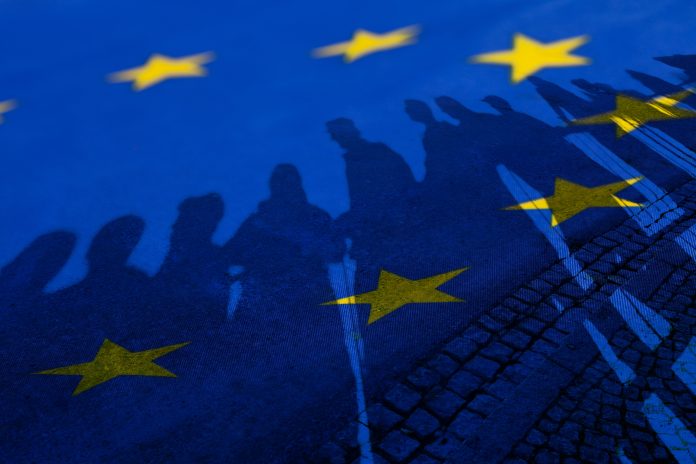Wolfgang Teubner, ICLEI Regional Director for Europe and the Managing Director (CEO) of the ICLEI European Secretariat, shares with us the importance of making use of our multilevel system for a democratic, sustainable and resilient future with the EU Green Deal
In the desert, in an air-conditioned room, climate delegates gather. Over the main entrance, the words COP 28 are printed on large posters, and the global conference motto is UNITING THE WORLD TO TACKLE CLIMATE CHANGE. Another year, another climate diplomacy milestone agreement.
As the years moved along, so did the environmental and climate-related agreements, accords, and goals strenuously adopted by governments. And when the negotiation dust has settled over the hard-won objectives and international commitment, climate action stalls. The climate crisis is one of the most significant challenges we are facing, but the threat of a climate dystopia is not far behind.
A brave new world: Defying climate dystopia
A pervading sense of powerlessness and pending disaster has led to increasing disengagement with the climate dialogue. The harrowing statistics linked to the impact of climate change can and should not be ignored, but neither should the political structures in which they occur and the potential for these structures to be reshaped.
The European multilevel governance system offers one way to tackle climate dystopia and have a meaningful impact on climate change. While more and more people grow weary of the European Union (EU) and national politics, local governments, as the level closest to citizens, still enjoy high trust rates among them. Over the past year, doors have opened for local governments to have a seat at the decision-making tables. Now, it is time for local governments to walk through those open doors, take more responsibility, and be equipped with the financial and political power to do so.
What is the EU Green Deal?
When the European Commission (EC) presented the EU Green Deal in 2020, we finally got a framework to step up ambitious, coherent and holistic action for urgently needed adaptation and mitigation efforts to make Europe the first climate-neutral continent by 2050. Many cities and local governments all over Europe have since embraced the EU Green Deal by developing their very own Local Green Deals.
The concept is as simple as possibly game-changing in a time of green policy pushback: articulate an explicit mutual agreement between the local government, its stakeholders, and its urban society – specifically local economic actors, such as SMEs and civil society organisations – to implement tailored actions in line with the city’s sustainability goals.
Resilience and competitiveness of cities
Strengthening the resilience and competitiveness of cities, and thereby Europe as a whole, is an approach that is increasingly recognised, accepted and supported by national and EU governments. Hundreds of cities are now cooperating with the EC under the “Climate-Neutral and Smart Cities – EU City Mission” receiving support in developing Climate City Contracts (a form of Local Green Deals). Indeed, ICLEI members like Mannheim, together with many other cities, organised in the EU’s Intelligent Cities Challenge are leading the international charge on developing Local Green Deals.
Today, the EU’s subnational governments mobilise around 58% of climate-significant public expenditures. However, measures for climate protection and biodiversity are not part of the mandatory tasks of many municipalities, and consequently, they often must take a back seat to necessary maintenance tasks in times of shrinking public budgets. They are also often the first responders to natural disasters as the consequences of inaction on climate change. Ironically, they are the level least included in national and EU-level climate and environmental policymaking.
While cities are increasingly encouraged and supported by EU and national governments to develop medium- and longer-term strategies and action plans, support programmes are usually bound to the national context, objectives and priorities. This is leading to a large gap between the investments needed and the funds available in the public system. Aside from the previously referenced EU city initiatives, the EU does not provide significant investment funds that are directly accessible to local authorities. While there are several structural funds and instruments, they are usually funnelled through different national ministries.
A hypothetical example of how this can significantly hamper the transition is the following: A city planning a new tram line that would like to take advantage of the unavoidable street works by holistically redesigning the whole area, making it more accessible, green, resilient and sustainable – as would be the intention of the Green Deal – would currently, depending on the national context, often having to prepare different applications for different funding schemes with different granting timelines. This circumstance not only makes holistic planning more difficult, lengthy, and expensive but also harder for citizens to understand.
Staying the course of the EU Green Deal
What we need is better-coordinated funding and integration of financing programmes for cities and local governments by moving from ‘funding by project’ to ‘funding by programme’. Overhaul of the financing system, building technical know-how in cities, and structured dialogues at all levels of governance are at the centre of the call made in April 2024 by the Local Alliance, an alliance of eight leading European city networks, including ICLEI Europe, on EU leaders to ensure the Green Deal can be effectively rolled out at a local level.
Above all, we need one thing to turn towards, not away from, our political systems: urge the EU and national governments to stay the course of the EU Green Deal, defy climate dystopia and rebuild our faith that a sustainable future is possible. How we make use of a multilevel governance system for a democratic, sustainable and resilient future will be the centre of our discussions at the European Sustainable Cities and Towns Conference. The conference will bring together all levels of governance including local, national and regional governments, European decision-makers and stakeholders from 1-3 October in Aalborg.











